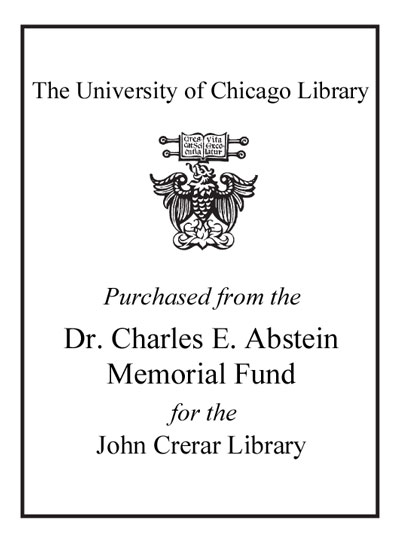Review by Booklist Review
Medical journalist Stipp explores humankind's obsession with postponing death, a pursuit as old as humankind. Whether it be by vasectomy, magical rejuvenating waters, or downing potions comprising ground-up monkey testicles, humans have been willing to resort to extreme measures in pursuit of extending life. It is not just life we desire; it is a long, vigorous life that exerts an irresistible siren call. For much of history, those efforts have suffered the bad reputations of charlatans. However, and more so recently, standing apart from the cranks (vasectomy) and hustlers (monkey gonads) is an ever-expanding number of earnest, credentialed scientists and gerontologists who are making daily strides toward the elixir so many seek. Stipp's experience as a popular Wall Street Journal and Fortune magazine writer have blessed him with a singular style, crafting complex explanations of scientific discoveries (and failures) into eminently enjoyable reading. Whether or not the notion of living energetically to the age of 150 appeals, Stipp makes the research compelling.--Chavez, Donna Copyright 2010 Booklist
From Booklist, Copyright (c) American Library Association. Used with permission.
Review by Publisher's Weekly Review
The possibility of even a decade more of healthy longevity still makes for an engaging study of recent breakthroughs in gerontology. Former Wall Street Journal science reporter Stipp surveys contending theories of aging-such as antioxidants-and their pitfalls before focusing on promising research into the so-called CR mimetics, drugs that mimic the possibly life-extending benefits of calorie restriction without the unpleasant semistarvation. (Lab mice, rejoice: the CR mimetic resveratrol may even prevent cancer and keep your coat glossy.) The book morphs into a business potboiler, with researchers forming biotech startups and selling IPOs-adding hype but little light to the story. But if this is a more conventional and prosaic account than Jonathan Weiner's in Long for This World, Stipp's lucid and spry exposition of the science is tantalizing enough on its own. (July 8) (c) Copyright PWxyz, LLC. All rights reserved
(c) Copyright PWxyz, LLC. All rights reserved
Review by Library Journal Review
For two books on more or less the same subject, these are quite different works. It is no coincidence that, as the baby boomer generation ages, the subject of lifespan enhancement has become more popular. Certainly, too, the significant increases in average life expectancy both fuel and provide credence to hopes for not only living longer but living longer, well. Stipp, a former Wall Street Journal reporter, has written the more thorough, investigative overview on the whole field of gerontology and its expanding frontiers. From the history of attitudes and philosophies on old age and various nostrums that have been pitched to the hard science of the cellular mechanisms of aging, genetic studies, and dietary variables and finally to what is becoming the big biotech business of life extension, Stipp covers the field admirably. Ultimately, the "youth pill" that may (or may not) add years to peoples' lives is derived from resveratrol, renowned as an ingredient in red wine. This tour de force is recounted with insight, authority, and a somewhat breezy style reminiscent of the best of Natalie Angier's works. By contrast, Weiner, whose writing has won him a Pulitzer Prize, begins with a history and survey of the field, but throughout focuses on the work, career, and personality of Aubrey de Grey, a colorful Englishman who really, truly believes that practical immortality (or at least what he calls "negligible senescence") is achievable. Through his give-and-take discussions with de Grey, Weiner explores the frontiers of the science and, also, in a very illuminating way, tackles the philosophical significance of extremely long life. Imagine, for example, a world where people cease to be interested in reproducing. What would such a society look like? De Grey believes that it will happen and has a seven-pronged plan for making it so. Is he to be taken seriously, though? In that regard, it is interesting that the central subject of Weiner's book merits just one passing mention in Stipp's, and that is in a rather dismissive context. Verdict For anyone wishing to understand the proven science and imminent frontiers of gerontological research, Stipp's text is better and serves as a good update to Stephen Hall's Merchants of Immortality. Weiner's book is more thoughtful at pondering the "what if" scenarios of a future society of Methuselahs.-Gregg Sapp, Evergreen State Coll. Lib., Olympia, WA (c) Copyright 2010. Library Journals LLC, a wholly owned subsidiary of Media Source, Inc. No redistribution permitted.
(c) Copyright Library Journals LLC, a wholly owned subsidiary of Media Source, Inc. No redistribution permitted.
Review by Booklist Review
Review by Publisher's Weekly Review
Review by Library Journal Review


